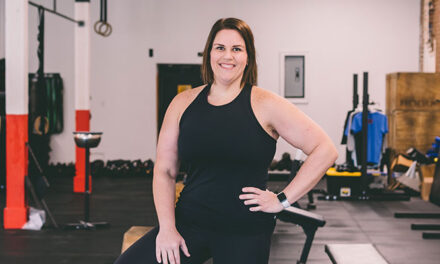Mollie and Taylor Walker just celebrated their daughter’s third birthday on Easter. However, getting to that point wasn’t easy. Once the Walkers decided they were ready to be parents, it took them a year and a half to conceive.
Mollie, 30, learned she doesn’t ovulate on her own and took the advice of Dr. Jason Williams of Memphis Obstetrics & Gynecological Association (MOGA). She tried Clomid, an ovulatory enhancer. Just one month later, they found out they were pregnant with their daughter, Lawson Grace Walker, who was born April 1, 2015. The couple started trying for their second child in November 2016, and Mollie became pregnant within the first month.
“We went in for an ultrasound at 7-8 weeks and found out I had miscarried,” she says. They continued trying to get pregnant and again turned to Clomid for help, however, Mollie ended up having a second miscarriage in 2017. Anxious to expand their family and looking for answers, Mollie made an appointment with Dr. Amelia Bailey at Fertility Associates of Memphis.
“Dr. Bailey was wonderful and thorough. We found out that I have a blood-clotting disorder, which could have caused the miscarriages,” Mollie says.
“I can’t stress enough that I believe in the power of prayer. I could not have gone through this journey without the support of my husband, family and friends, and trusting in the Lord.”
After trying several medications and taking daily shots for her blood-clotting disorder, Mollie and Taylor learned they were pregnant again. They will welcome their son, Noah Daniel Walker, to the world in August 2018.
“I can’t say enough positive things about Dr. Williams (MOGA) and Dr. Bailey and Fertility Associates of Memphis. They were with me every step of the way and kept a close eye on my baby and me.”
Mollie’s journey to motherhood opened her eyes to the number of women suffering from fertility issues. She is active in Memphis Friends Through Infertility, a Facebook group that brings together women as a support system for each other during their journeys with infertility.
“Many women struggle with infertility in silence or feel embarrassed. I want them to know that there are support groups and resources. It has been amazing to see the number of women who have said they’re struggling, too,” Mollie says, “It’s important for women to know that they shouldn’t give up and they are not alone.” She recommends that families explore fertility options that might be covered by their employers. Molly has become an advocate for fertility coverage in the workplace.
By Christin Yates
Photos by Tindall Stephens










